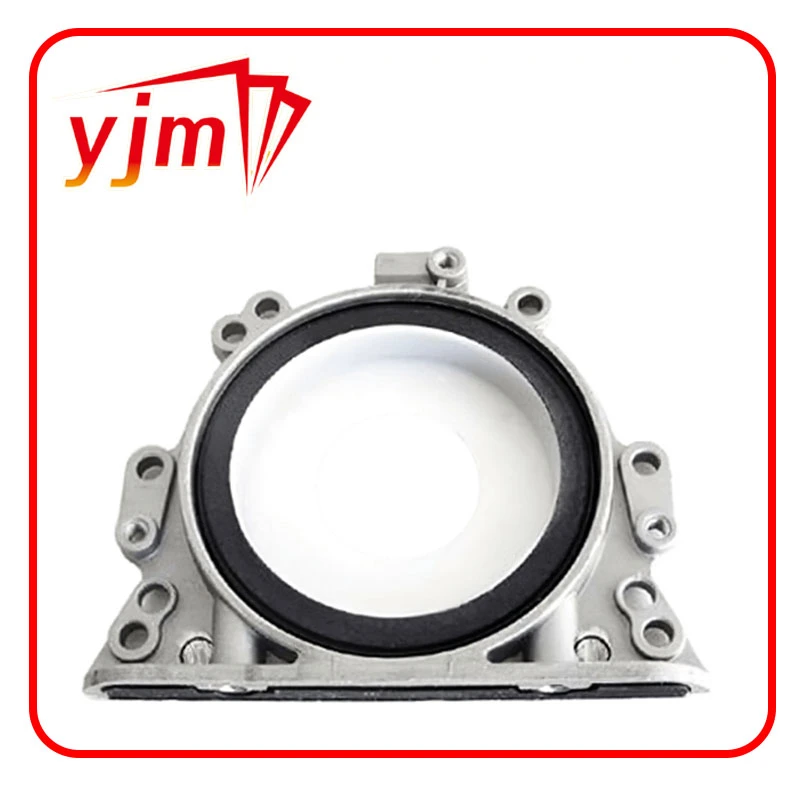mechanical oil seals
Understanding Mechanical Oil Seals A Key Component in Machinery Performance
Mechanical oil seals play a crucial role in various industries, ensuring the optimal performance and longevity of machinery. These seals are designed to prevent the leakage of lubricants and to keep contaminants from entering the machinery, thus maintaining the efficiency and reliability of mechanical systems.
What is a Mechanical Oil Seal?
A mechanical oil seal consists of a flexible rubber or elastomeric material that fits snugly against a rotating shaft. It usually contains several components, including a circular sealing element, a metal case for support, and a spring that helps maintain the seal's pressure against the shaft. This design allows the seal to adapt to slight variations in the shaft's movement, ensuring a consistent barrier against fluid loss and contamination.
Types of Mechanical Oil Seals
There are various types of mechanical oil seals, each suited for specific applications and operating conditions. Some of the most common types include
1. Radial Oil Seals These are the most commonly used oil seals, primarily designed to fit around rotating shafts. They are effective in preventing oil from leaking out and dirt or moisture from penetrating into the machinery.
2. Mechanical Face Seals Used in applications where high pressures and temperatures are involved, these seals create a barrier through the interaction of two flat surfaces. They are often found in pumps and heavy machinery.
3. Lip Seals Featuring a flexible lip that creates a seal against the shaft, these seals are designed to provide a tight fit and are frequently used in automotive applications.
4. V-Rings These are elastic rings that fit onto the shaft and provide sealing against a housing. They are particularly useful in applications with axial movements.
Importance of Mechanical Oil Seals
The significance of mechanical oil seals cannot be overstated. They provide several benefits, including
mechanical oil seals

1. Leak Prevention Oil seals prevent the leakage of lubricants, which is crucial for the efficient operation of machinery. Oil loss can lead to increased friction, overheating, and ultimately, machinery failure.
2. Contaminant Exclusion They protect the internal components of machinery from harmful contaminants such as dust, dirt, and moisture, which can lead to wear or damage over time.
3. Improved Performance By maintaining the appropriate levels of lubricant, mechanical oil seals help ensure that machinery operates smoothly and efficiently, reducing the likelihood of breakdowns and extending service life.
4. Cost-Effectiveness Although they may seem like a small component, the failure of oil seals can lead to significant repair costs. By preventing leaks and contamination, mechanical oil seals can substantially reduce maintenance expenses.
Application Areas
Mechanical oil seals are utilized in numerous applications across various industries
- Automotive In engines and transmissions, oil seals prevent oil leaks and protect internal components from debris.
- Industrial Machinery In factories, oil seals are critical for ensuring the smooth operation of gears, pumps, and other mechanical systems.
- Aerospace In aircraft, oil seals are essential for maintaining hydraulic systems and preventing oil leaks.
- Home Appliances Mechanical seals are also found in common home appliances like washing machines and refrigerators, where they help manage the movement of fluids.
Conclusion
In conclusion, mechanical oil seals are vital components that contribute significantly to the reliability and efficiency of mechanical systems across diverse industries. Understanding their functions, types, and applications is essential for effective maintenance and operation of machinery. By investing in quality oil seals and ensuring their regular inspection and replacement, industries can enhance their operational efficiency, reduce costs, and prolong the life of their equipment. As technology continues to advance, we can expect to see further innovations in oil seal design and materials, leading to even better performance in the future.
-
Simplifying Oil Changes: A Comprehensive Guide to Oil Drain Plugs and Their Variants
News Aug.04,2025
-
Mastering Oil Drain Maintenance: Solutions for Stripped, Worn, and Upgraded Oil Plugs
News Aug.04,2025
-
Fixing Oil Pan Plug Issues: Leaks, Stripped Nuts, and the Right Replacement Solutions
News Aug.04,2025
-
Everything You Need to Know About Oil Drain Plugs: Sizes, Fixes, and Upgrades
News Aug.04,2025
-
Choosing the Right Oil Drain Plug: A Guide to Sizes, Materials, and Drain Innovations
News Aug.04,2025
-
A Complete Guide to Automotive Drain Plugs: Types, Problems, and Innovative Solutions
News Aug.04,2025
-
The Ultimate Guide to Car Repair Kits: Tools and Essentials Every Driver Should Own
News Aug.01,2025
Products categories















